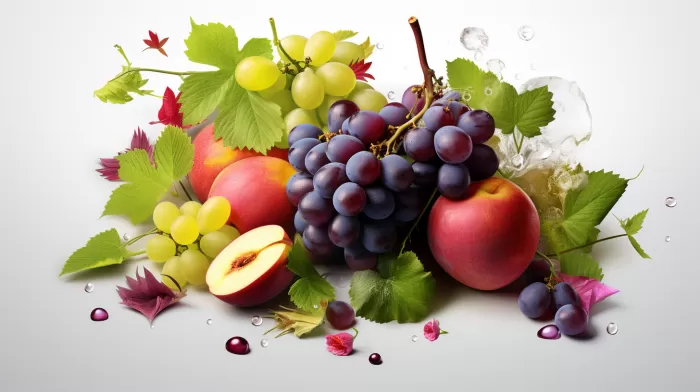The prostate gland plays a significant role in urinary tract function, sexual health, and overall male well-being. However, this gland is vulnerable to conditions such as enlarged prostate (benign prostatic hyperplasia, or BPH), prostatitis (inflammation of the prostate), and prostate cancer. Pollen and quercetin, two natural substances, can help support and restore prostate health when taken individually or together in prostate supplements. As these substances are derived from plants, they fall under the category of phytotherapy.
What is Phytotherapy?
Phytotherapy involves the use of herbs or other plant-based products to prevent or treat health conditions. It is especially popular among men suffering from prostate issues, especially when conventional treatments like antibiotics for chronic prostatitis are ineffective.
Pollen and quercetin work in slightly different ways to support prostate health, including BPH, prostatitis, and prostate cancer. The advantages of combining these phytotherapies are:
- Unique mechanisms of action
- Minimal side effects
- Low cost
- High level of acceptance by patients
- Effectiveness in treating symptoms of BPH and prostatitis
Pollen and quercetin can work together or alone in “prostatic health” formulations that target men with prostatitis.
Pollen and Quercetin: Working Together
Pollen is an anti-inflammatory that helps relieve symptoms of BPH and prostatitis, while quercetin is a bioflavonoid phytonutrient that provides anti-inflammatory benefits. Found commonly in apples, tea, onions, red grapes, wine, leafy greens, and some berries, quercetin also has antioxidant and antitumor properties that help prevent and combat prostate cancer.
Quercetin Studies on Prostate Cancer and Prostatitis
At the usual dose of 500 mg daily, quercetin has proven to be effective in relieving symptoms for men with BPH, prostatitis, and prostate cancer. A study in “Molecular and Cellular Biochemistry” revealed that quercetin is effective in decreasing the activity of specific enzymes involved in tumor invasion and metastases, making it a potent chemopreventive agent for metastatic prostate cancer.
Similarly, quercetin’s ability to inhibit the production and release of substances causing inflammation makes it an effective natural agent for managing chronic prostatitis/chronic pelvic pain syndrome (CP/CPPS). It was found to be the most effective treatment for prostatitis when compared with other alternatives in a Cleveland Clinic study. Additionally, 500 mg of quercetin taken twice daily for one month led to a significant decline in prostatitis symptoms compared to a placebo.
Another study found that quercetin provided significant symptomatic improvement in men with chronic nonbacterial CP/CPPS. Patients reported improved quality of life after quercetin treatment due to its anti-inflammatory and antioxidant properties. A randomized, double-blind, placebo-controlled study observed a decline in the International Prostate Symptom Score after one month of quercetin treatment.
Pollen Studies on BPH and Prostatitis
The majority of studies on pollen for prostate health focus on Graminex pollen extract or cernilton, which contains pollen from rye, corn, and timothy. Bee pollen extracts have been used for over 35 years in Europe to treat BPH. Several studies discuss the effectiveness of pollen in alleviating symptoms.
Pollen extract has been found to be approximately 70% effective in decreasing an enlarged prostate’s symptoms. An analysis of four studies involving 444 men with enlarged prostates found that bee pollen improved the need to urinate overnight compared to a placebo. Another study in the “British Journal of Urology” had participants with outflow obstruction from enlarged prostate take either bee pollen or a placebo daily for six months. At the end of the study, 69% of the men who took bee pollen experienced improved symptoms compared to 30% on the placebo. The improvements included a decrease in residual urine and a measured decrease in prostate diameter.
In a Japanese study, 79 patients took bee pollen for over twelve weeks. At the end of the study, patients experienced increased flow rates and a significant decrease in residual volume. Other improvements in urgency, dysuria, nocturia, delayed voiding, dribbling after urination, and incomplete emptying were reported.
Bee pollen has also been used to treat prostatitis symptoms. A study on cernilton on CP/CPPS presented by the American Urological Association in 2006 found that men taking cernilton had statistically significant improvements in their pain and quality of life. Another study in “Urology” reported that after six months, men with chronic nonbacterial prostatitis/CPPS either had no symptoms or exhibited significantly improved symptoms.
Bee pollen is demonstrated to inhibit prostate cell growth and have an anti-inflammatory effect, making it an essential supplement for prostate health.
Where to Find Quercetin and Pollen
A prostate health supplement that contains quercetin, pollen extract, and other natural remedies, like Prost-P10x, is an excellent way to receive the benefits of quercetin and pollen if you have prostate health concerns. Supplements can also be found at health food stores.
Precautions that should be taken with these supplements include:
- Bee pollen is not suitable for people allergic to pollen, as it may cause a severe reaction, including hives, shortness of breath, and swelling of the tongue, face, and throat. Consult your doctor before taking bee pollen if you are allergic to grass, flowers, or other plants.
- Do not exceed 1 gram of quercetin daily without consulting your healthcare provider. Studies show it is effective at 500 mg. Side effects of quercetin may include headaches and stomach upset.



